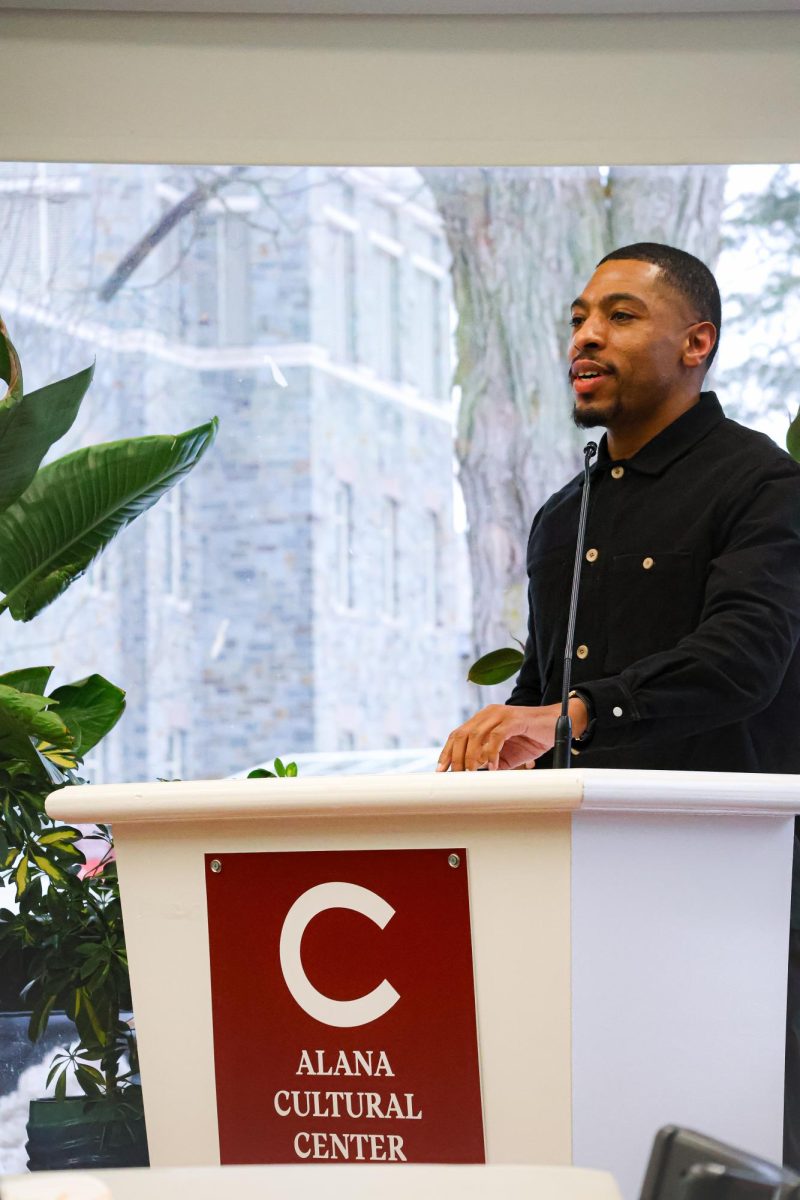The Colgate University English and creative writing department hosted a talk titled “Remediating the Studio System in May 1970: “The Firesign Theatre’s Don’t Crush That Dwarf, Hand Me the Pliers”” on Feb. 11. The talk was presented by Jeremy Braddock, associate professor of literatures in English at Cornell University. Braddock shared his findings from research for his book “Firesign: The Electromagnetic History of Everything as Told on Nine Comedy Albums” with an emphasis on content from the book’s first chapter.
In his talk, Braddock reflected on the legacy of The Firesign Theatre, a comedy vocal group known for blending old and new media technologies to create distinct tracks for radio broadcasting. They represented differing thematic elements compared to other artists of their time.
“Movement within, among and between media has replaced movement in social space,” Braddock said.
Braddock went on to emphasize that the group’s innovative use of the studio allowed them to create music as it was never heard before.
When answering a question on The Firesign Theatre’s approach to lyric writing, Braddock highlighted their academic backgrounds.
“They’re all theatre and English majors, and they all read a lot, so they have a literary sensibility. They understand how words sound,” Braddock said.
Professor of English Michael Coyle met Braddock at a conference and invited him to present at Colgate. Not only was his decision to bring Braddock due to an admiration for his scholarly work, but Coyle himself listened to The Firesign Theatre as a teenager. He was intrigued by their crafty, non-traditional approach to music production.
“They were cutting tape and splicing it back together, having it re-record certain things multiple times,” Coyle said. “It was a lot of effort, and nobody had ever done this before so they were making things up as they went along, trying things out.”
Sophomore Katie Bradley, who is in a band on campus called Chalant, attended the lecture. As someone interested in music production, Bradley found Braddock’s talk informative.
“I thought that it was really interesting to hear about the process that it took to create the albums, especially in this age of podcasts. I thought there were a lot of parallels,” Bradley said.
The techniques that The Firesign Theatre used were revolutionary for the time, but Braddock noted that creating similar tracks would be possible today thanks to digital music production.
“I think that it reminded me that it’s a luxury with the technology we have now to make corrections,” Bradley said. “It was a good reminder that all media influence each other.”
As a group, The Firesign Theatre was deeply influenced by the counterculture movement of the late 1960s and early 1970s. Their tracks resonated with audiences who were open to questioning social norms. Coyle picked up on these themes and noted how they made for impactful tracks.
“They’re there to remind us of possibilities that we may have forgotten. There are other ways to live, other ways to think — that’s all I ask of any art,” Coyle said.














